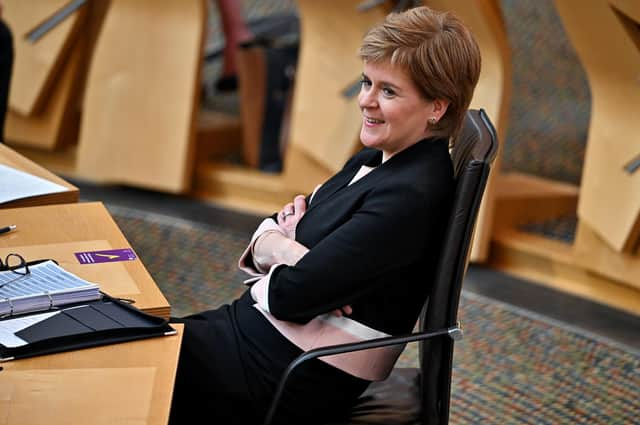Nicola Sturgeon is abusing the Supreme Court as cover for her stunts – Brian Wilson


The court had been called on, yet again, to adjudicate on a dispute about Holyrood’s powers. Two Bills it passed were, according to the UK Government, outside these powers, because they created legal obligations within reserved areas.
Lord Reed told the QC representing the Scottish Government that it appeared to be “a matter of policy that … you draft the legislation as if the constraints in the Scotland Act didn’t exist, and then leave it to the courts to sort out the problems on a case-to-case basis”. What a way to run a legislature.
Advertisement
Hide AdAdvertisement
Hide AdFor good measure, Lord Reed told the hapless James Mure QC: “In most liberal democracies, one expects the law of the land to be publicly available and accessible – whereas this technique of drafting guarantees that the one thing you can be sure of is that the terms of the statute do not represent the law.”
Loosely translated, this means that the priority of the Scottish Government is not to legislate for the social good within the vast powers it possesses but to repeatedly pick fights on matters it knows perfectly well to be outside these powers.
The strategy is then to make a furious noise about Whitehall’s wickedness in seeking to “grab” powers Holyrood never had, waste the time of the courts right up to the Supreme Court and rely on shortness of public memory by the time a ruling emerges. I repeat – what a way to run a legislature, and contempt for devolution.
These politics were well illustrated by Nicola Sturgeon’s rhetoric during the Holyrood elections around one of the disputed Bills, which would incorporate the UN Convention on the Rights of the Child into Scots Law. The UK signed the convention over 20 years ago.
Ms Sturgeon, never noted for under-statement when there is a bogus grievance to promote, complained of a “politically catastrophic and morally repugnant” challenge. Her sidekick, John Swinney, chipped in with “an orchestrated and sustained assault on Holyrood’s powers”.
It was all complete rubbish. Rather, this was part of the “policy” of ignoring the Scotland Act in order to create a political row regardless of cost either in financial terms – the Supreme Court does not come cheap – or to Scotland’s legal reputation.
Meanwhile, so much remains undone within Holyrood’s powers that would advance the “rights of the child”, rather than arguing about an utter abstraction in the Supreme Court. Sturgeon and Swinney should be held accountable for every penny wasted on a political stunt that could have been spent fighting child poverty and educational disadvantage in Scotland.
They appear to have picked the wrong man in Lord Reed who comes with a hinterland not only in drafting the original Scotland Act but also defending the genuine rights of Holyrood within that framework.
Advertisement
Hide AdAdvertisement
Hide AdIn a 2019 lecture, he quoted a landmark judgment to which he was party that maintained the Scottish Parliament, and also the Welsh and Northern Irish assemblies, as democratically elected legislatures could only be challenged “for a breach of the statutory limits on its powers” . Thus spake a true defender of the devolution settlement.
The Supreme Court, he said, was “an arbiter when political solutions cannot be found. The court’s success in performing that role depends on public and political confidence in the court’s complete impartiality: something which both the court and the political institutions involved have a responsibility to maintain and support”.
Ms Sturgeon's current fight about powers is a dry run for the same performance, with even more bellicose noises about political catastrophes and moral repugnance, when a doomed-to-fail Referendum Bill is brought to Holyrood for a green rubber-stamp.
Before then the “policy” of ignoring the Scotland Act, creating mock political fury and treating the Supreme Court as useful cover deserves to be called out as the pointless charade it really is – an abdication of precisely the “responsibility” Lord Reed called for.
